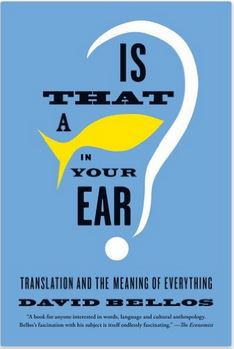
Our Community
Get to know our community
Join Translation Journal
Click on the Subscribe button below to receive regular updates.
Giovanna Lester

Question and Answer
- What is your name?
- Giovanna Lester
- Where do you live?
- Pinecrest. Fl
- How long have you been an interpreter or translator
- 35 years as both
- What made you decide to become a translator or interpreter?
- It was the only job available at the time.
- List one strength that you think sets you apart from your colleagues.
- Bi-cultural knowledge.
- Name the one thing that you most enjoy in your translating or interpreting career.
- The learning.
- We all have worked on those not-so-perfect assignments. Write about one such assignment that was not ideal and what you learned from it.
- Agency missbooked me for the wrong language (PTBR vs PTPT) but explaining the situation to the lawyers and the handy Oxford-Duden made the situation bearable and fruitful. "Keep your tools handy!"
- If you could go back in time to when you were just starting out as a translator or interpreter, what advice would you give to your younger self?
- Take some business classes!
- Name one resource – such as a phone app, CAT tool, website, and so forth – that you find especially helpful in your translating or interpreting work.
- CAT tools
- 8.) What’s the best book you’ve read this year?
- Is That a Fish in Your Ear? by David Bellos
An NBCC Award and Los Angeles Times Book Award finalist
A New York Times Notable Book for 2011
One of The Economist's 2011 Books of the Year
People speak different languages, and always have. The Ancient Greeks took no notice of anything unless it was said in Greek; the Romans made everyone speak Latin; and in India, people learned their neighbors' languages―as did many ordinary Europeans in times past (Christopher Columbus knew Italian, Portuguese, and Castilian Spanish as well as the classical languages). But today, we all use translation to cope with the diversity of languages. Without translation there would be no world news, not much of a reading list in any subject at college, no repair manuals for cars or planes; we wouldn't even be able to put together flat-pack furniture.
Is That a Fish in Your Ear? ranges across the whole of human experience, from foreign films to philosophy, to show why translation is at the heart of what we do and who we are. Among many other things, David Bellos asks: What's the difference between translating unprepared natural speech and translating Madame Bovary? How do you translate a joke? What's the difference between a native tongue and a learned one? Can you translate between any pair of languages, or only between some? What really goes on when world leaders speak at the UN? Can machines ever replace human translators, and if not, why?
But the biggest question Bellos asks is this: How do we ever really know that we've understood what anybody else says―in our own language or in another? Surprising, witty, and written with great joie de vivre, this book is all about how we comprehend other people and shows us how, ultimately, translation is another name for the human condition.
